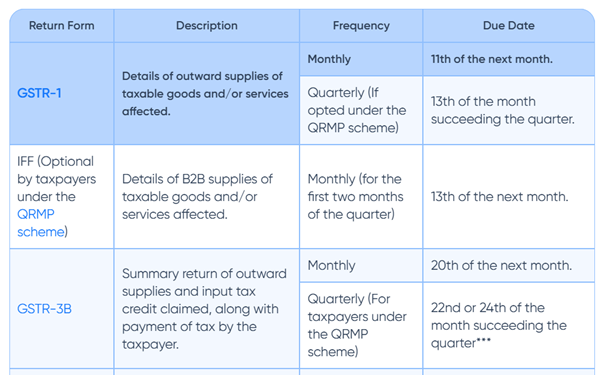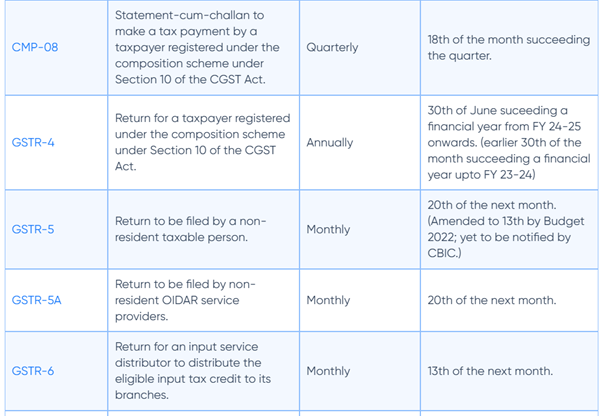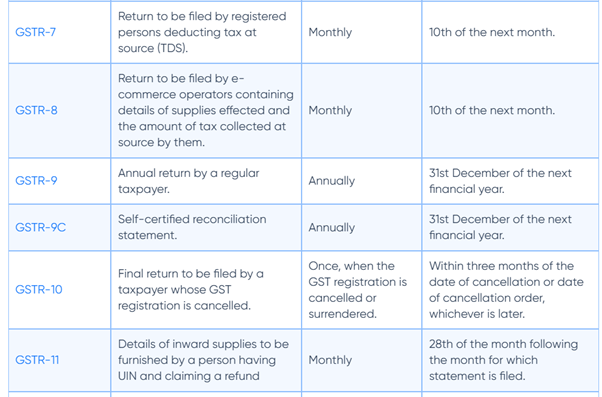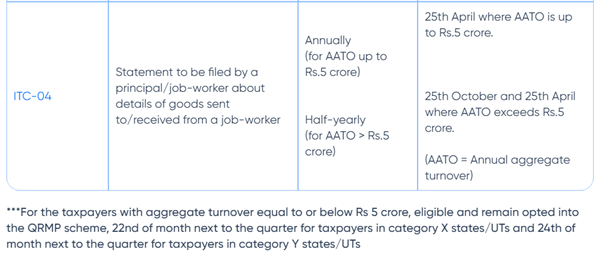Get the Best GST Consultancy Services
If you are running a business then it is necessary that you choose the right type of GST registration and follow all of its rules and regulations, Especia offers the best GST consultancy services all over India. The Goods and Service Tax Act came in the Indian Parliament on 29th March 2017 and the nation got it into effect on 1st Jul 2017. In the other words, goods and services tax (GST) is levied on the supply of goods and services.
The Goods and Services Tax in India is a necessary, multi-stage, comprehensive tax that is charged on every value addition. GST is a single domestic indirect tax law as for the entire country.
Advantages of GST
The Goods & Services Tax can be beneficial as it simplifies taxation, by making it reduced with several different taxes into one straight-forward structure.
It was also thought to splash down on tax ignoring among businesses and reduce corruption. There are many GST Consultancy Services whom one should consult for taking benefits from several GST solutions.
- Higher threshold for registration under guidance of GST Registration consultant.
- Composition schemes for small scale businesses, several with GST solutions.
- Simple online facilities for GST compliances and GST solutions
- Defined process for e-commerce
- Regulation in unauthorised sectors
Who needs to register for GST / Goods & Service Tax Registration Number?
The Following Category Of Business should Register For GST:
- For that Business who is having Annual Turnover More than 20 Lakhs Per Annum (10 Lakh for the North Eastern States)
- For those businesses which is in More than One State
- For Business having Previous registration Under VAT, Excise Laws, Service Tax Laws
- E-commerce business
- Providers of Services and Goods outside India
Online GST Return Annual Filing- GST Filing & GST payment just one click!!
According to New GST registration Process, applicant is required to register if annual sales are more than Rs. 40 Lakh but if your sales are below Rs. 40 Lakh, we recommend to voluntarily opt for GST registration for following reasons:
- To get tax refunds on purchases (e.g. if you buy goods valuing Rs 1 lakh in a year, and tax rate is 18% – you will lose tax refund of Rs. 18,000).
- To sell outside your state
Under the new GST regime, a registered dealer under the GST Act has to periodically furnish the details of sales and purchases along with tax collected and paid thereon to the government by filing GST return online.
How many returns are there under GST?
There are 13 returns under GST. They are the GSTR-1, GSTR-3B, GSTR-4, GSTR-5, GSTR-5A, GSTR-6, GSTR-7, GSTR-8, GSTR-9, GSTR-10, GSTR-11, CMP-08, and ITC-04. However, all returns do not apply to all taxpayers. Taxpayers file returns based on the type of taxpayer/type of registration obtained.
Eligible taxpayers, i.e. with a turnover exceeding Rs.5 crore are also required to also file a self-certified reconciliation statement in Form GSTR-9C.
Besides the GST returns that are required to be filed, there are statements of input tax credit available to taxpayers, namely GSTR-2A (dynamic) and GSTR-2B (static). There is also an Invoice Furnishing Facility (IFF) available to small taxpayers who are registered under the QRMP scheme to furnish their Business to Business (B2B) sales for the first two months of the quarter. These small taxpayers will still need to pay taxes on a monthly basis using Form PMT-06.
We have explained the various GST returns, along with applicability and due dates in the section below.
Here is a list of all the returns to be filed as prescribed under the GST Law along with the due dates.




TDS Filing: Eligibility, Filing Process, Due Dates, Revised TDS Return, TDS refund
Any person or business who deducts TDS needs to file TDS return, It is filed with Government every quarter, the purpose of it is to inform on the TDS deducted on the payments made by deducter and also and the TDS deposited by deducter in particular quarter. TDS return is filed online. TDS refund is possible only id compliance of filing is completed by party deducting TDS. The smart way is to consult your Chartered Accountant to ensure you are complying with TDS law and getting your TDS refund in a correct manner.
TDS Provision compliance
TDS you pay every month, you receive a challan, this Tds paid Challan is useful at the time of return filing, where you give details on tds deducted and paid by you. TDS filing every quarter is mandatory, The Return form of TDS is prescribed by the Government. The filing has to be done as per TDS due dates specified. Non-filing of return as per TDS provisions attracts penalty. Noncompliance to file TDS provisions gets reported to authorities through financial reporting. The objective is to keep a check on TDS payment status and compliance with the provision of TDS also TDS refund is possible only when filing compliances are complete. TDS refund can be claimed through filing ITR only if your tax computation shows that excess tax has been deducted in your case. Consult a Chartered Accountant to get help on TDS matters
How to know if TDS deducted has been deposited after deduction ?
If your tds has been deducted, you can check the same online through form 26AS in income tax India Government website
Who should deduct and pay TDS ?
An individual or a business makes payment if such payment exceeds the limit specified as per income tax act, the payer has to deduct tax before making the payment, this portion of tax is called tds. Basically here the person making payment is collecting tax on behalf of the Government. The party which deducts tax and makes payment is deducted and the party receiving payment is deducted. Every party deducting tds shall mandatorily do the tds e-filing or online TDS Filing.
Party whose tax has been deducted can claim this TDS deducted as TDS refund forfor the financial year in which TDS has been deducted. TDS refund can be claimed at the time of ITR Filing. In order to claim TDS refund, it is important that the party which has deducted your TDS has done the proper TDS filing.
TDS / TCS DUE DATES OF FY 2025-26
TDS DUE DATE :-
|
1st Quarter |
1st April to 30th June |
31st July 2025 |
|
2nd Quarter |
1st July to 30th September |
31st Oct 2025 |
|
3rd Quarter |
1st October to 31st December |
31st Jan 2026 |
|
4th Quarter |
1st January to 31st March |
31st May 2026 |
TCS DUE DATE :-
|
1st Quarter |
1st April to 30th June |
15 st July 2025 |
|
2nd Quarter |
1st July to 30th September |
15 st Oct 2025 |
|
3rd Quarter |
1st October to 31st December |
15 st Jan 2026 |
|
4th Quarter |
1st January to 31st March |
15 st May 2026 |
WHAT IS MSME/SSI/UDYAM REGISTRATION?
The Government of India has enacted the Micro, Small and Medium Enterprises Development (MSMED) Act, 2006 in terms of which the definition of micro, small and medium enterprises is given below.
The Ministry of Micro, Small and Medium Enterprises, a branch of the Government of India, is the apex executive body for policy making and administering laws relating to micro, small and medium enterprises in India Based on investment and turnover criteria a business falls in one of the three categories of Micro, Small or Medium.
If a business crosses the specified ceiling limits for its present category in either of the two criteria of investment or turnover, it will stop to fall in that category and be placed in the next higher category but no business shall be placed in the lower category unless it goes below the ceiling limits specified for its present category in both the criteria of investment as well as turnover.
Micro Enterprise; an enterprise where the investment in plant and machinery does not exceed Rs. 1 Crore & turnover less than Rs. 5 Crore is considered as Micro enterprise according to recent MSME guidelines.
Small Enterprise; an enterprise where the investment in plant and machinery is less than 10 Crore & turnover less than Rs. 50 Crore is considered a small enterprise according to recent MSME Guidelines.
Medium Enterprise; an enterprise where the investment in plant and machinery is less than Rs. 50 crore & turnover less than Rs. 250 Crore is considered as Medium enterprise according to recent MSME guidelines..
IEC Code Registration
IEC (Import Export Code) registration is mandatory for individuals or businesses engaged in importing or exporting goods and services from India. The IEC is a 10-digit alphanumeric code, which is the same as your PAN number, issued by the Directorate General of Foreign Trade (DGFT)—the government body responsible for regulating IEC registration in India.
Every business involved in cross-border trade must obtain an IEC. The process of online registration includes submitting an application along with the specified documents required for certification. IEC is crucial for customs clearance and is often required by banks for foreign remittances.
How to Get an Import Export License
After applying online for the IEC Code, your registration will be valid for one year and must be updated annually. For exporters, iDeal Services (through caonweb) allows you to apply online and receive your Import Export License on the same day.
Accounting & Bookkeeping Services in India
iDeal Services offers comprehensive Accounting & Bookkeeping Services across India, helping businesses efficiently manage daily records, analyze transactions, ensure profitability and compliance, and prepare essential financial documents like balance sheets and tax filings.
Many small and medium enterprises (SMEs) struggle with poor bookkeeping practices due to lack of resources. Bookkeeping goes beyond just tracking income and expenses—it's a disciplined system to maintain accuracy, interpret financial data, and ensure long-term business health.
Poor bookkeeping can result in legal complications, financial discrepancies, stress, and damage to your business reputation. As business owners, your focus should be on growth—not chasing accountants or correcting compliance mistakes. Outsourcing to professionals is a smart move.
iDeal Services, a trusted accounting solution provider, understands the critical role of bookkeeping. We deliver streamlined, cost-effective, timely, and decision-supportive services to enterprises across all industries in India. Our trained professionals and structured processes make us a preferred outsourcing partner for SMEs.
Best Accounting Services and Professional Bookkeeping Services
Our services focus on cost control and operational efficiency. With a specialized team of accounting professionals, we tailor our approach to meet customer-specific requirements—perfect for startups and small businesses needing reliable accounting and auditing support.
What Comes Under Accounting?
- Preparing tax returns
- Payroll services
- Cash handling services
- E-Accounting services
- Preparing financial statements
- Accounts payable/receivable
- Trial balance reconciliation
- Preparing balance sheet
What Comes Under Bookkeeping?
- Recording information
- Debt planning & reduction
- Labor cost management
- Invoice processing services
Permanent Account Number (PAN)
PAN is a 10-digit alphanumeric identifier issued by the Income Tax Department. It is mandatory in several financial transactions and income tax-related requirements.
PAN is to be obtained by:
- Every person if their total income, or income assessable to them, exceeds the maximum amount not chargeable to tax.
- Charitable trusts required to file a return under Section 139(4A).
- Every person carrying on a business/profession with turnover likely to exceed ₹5 lakh in any year.
- Every person entering into specified financial transactions where quoting PAN is mandatory.
- Every non-individual resident person and their associated persons if financial transactions exceed ₹2,50,000 in a financial year.
Penalty for Not Complying with PAN Regulations:
- Under Section 272B, a penalty of ₹10,000 is levied for not obtaining PAN, quoting incorrect PAN, or providing wrong PAN for tax deduction/collection.
- No individual is allowed to hold more than one PAN. If held, it must be reported to the Jurisdictional Assessing Officer for cancellation.
- PAN 2.0 includes logic to detect duplicate PAN requests, helping reduce the chances of multiple PANs being issued.
What is PAN 2.0?
PAN 2.0 is an upgraded version of the existing PAN system. It includes a QR code for faster access and verification. It enables paperless, secure, and streamlined taxpayer registration.
Key Benefits of PAN 2.0:
- Faster service delivery and better accessibility.
- Consistent data with a unified source of truth.
- Eco-friendly, cost-efficient processes.
- Enhanced security and infrastructure for more agility.
Note: Existing PAN cards will remain valid. The upgrade to PAN 2.0 is free of cost.